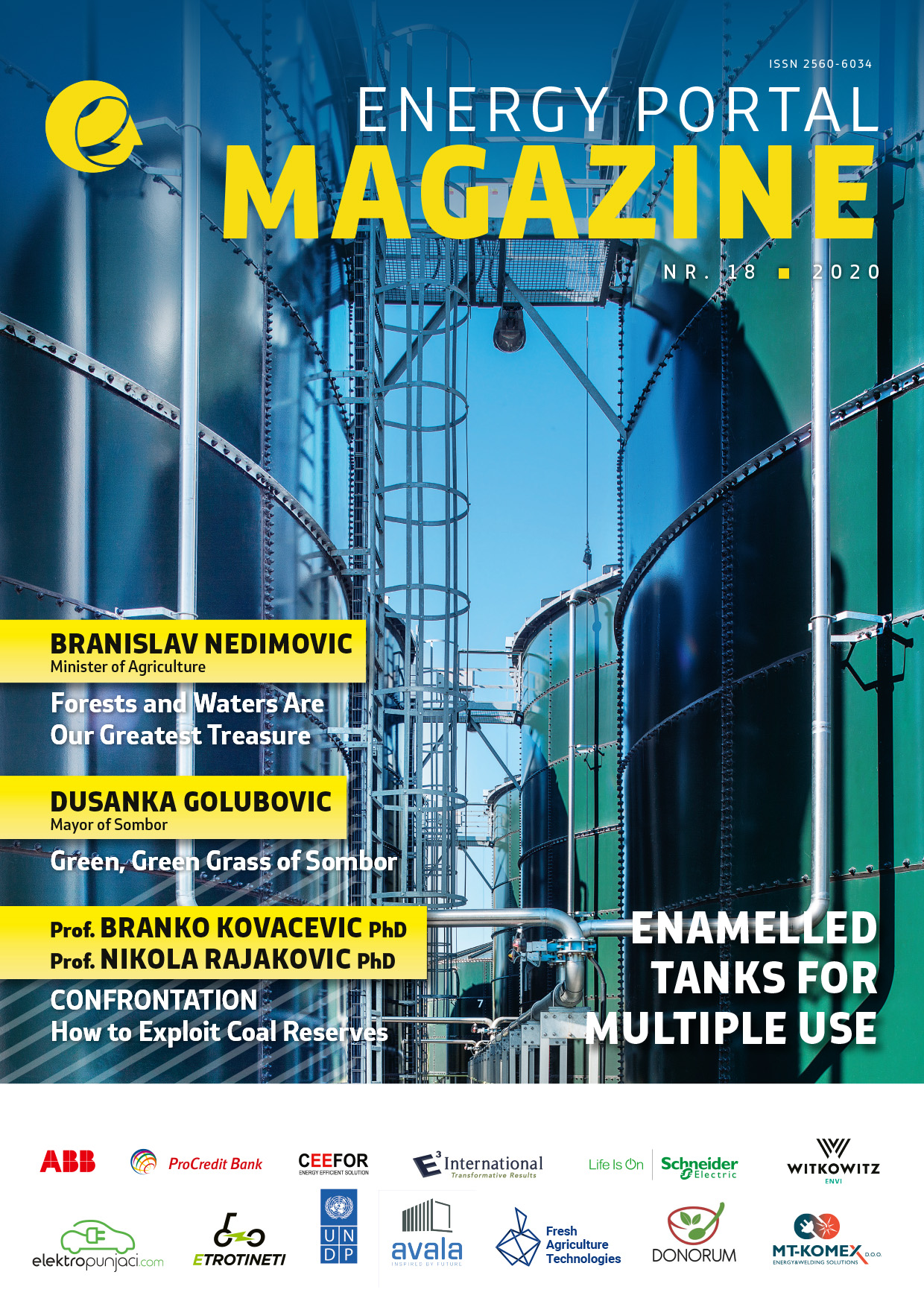
For the 18th issue of our Magazine, we chose the topic of NATURAL RESOURCES, which was a hot topic this winter. However, I have to admit that record air pollution, not only in Belgrade but also in other cities in Serbia, had a great contribution to this situation. The reasons for this pollution are numerous, but the most important is certainly individual furnaces and thermal power plants. Therefore, we easily chose a topic for the column Confrontation. This time we asked two eminent experts, Professor Branko Kovacevic, PhD, President of the Supervisory Board of Elektroprivreda Srbije EPS (EPS) and Professor at the Department of Power Systems at the Faculty of Electrical Engineering in Belgrade Nikola Rajakovic, PhD, how much coal-fired power plants emit greenhouse gases and thus harm air and health, what to do in our case when coal is the dominant energy source.
In addition to this interesting interview, after exactly two years, we have an interview with a Minister. Considering the topic of this issue, we decided to talk with the Minister of Agriculture, Forestry and Water Management Branislav Nedimovic, about the potential of our agriculture, yields, the fulfilment of forestry plans and whether the new law is being drafted which will allow GM food market.
Professor Dejan Ivezic, PhD, the Head of the Department of General Mechanical Engineering and Thermodynamics at the Faculty of Mining and Geology in Belgrade, wrote an opinion on the development of energetics in Serbia. No matter how the energy industry of Serbia develops, the maximum valorisation of renewable energy sources should be given priority; the professor pointed out.
Perhaps romantic barouche, rich history and cultural heritage may be the main reasons why Sombor exudes charm. Still, we must not forget the lush greenery due to which locals call it Greentown. The city government is also green, led by their Mayor Dusanka Golubovic, from whom we found out first-hand what the priorities of this municipality are when it comes to ecology, how to maintain communal order and keep the water, land and air clean, what the significance of the project for electricity production from wastewater, which is coming to an end, is and what is expected from the regional waste management centre whose construction is about to start.
Two domestic companies founded by young enthusiasts – Fresh Agriculture Technologies and Donorum – are focused on food. The first helps growers increase their yields; the second is humanitarian and works to combat food waste. Both have combined their economic and environmental components in their business but differently. What this is all about, you can find out in this issue.
How UNDP helps Montenegro develop low-carbon tourism and sustainable transport was revealed to us by Tomica Paovic, the head of the Program for Democratic Governance, Economy and the Environment. He also told us how he expects urban mobility to develop in this part of Europe and due to which obstacles, it is going slower than in other countries.
In addition to Montenegro, we have a story from Croatia. Jelena Jankovic shared with us the experiences of the Women’s Association of Vukovar, as well as current projects on which they are working hard.
Many interesting stories we have prepared for you, so don’t hold back. Not only did we enjoy working on them, but also came up with new and useful insights, and we hope you will!



